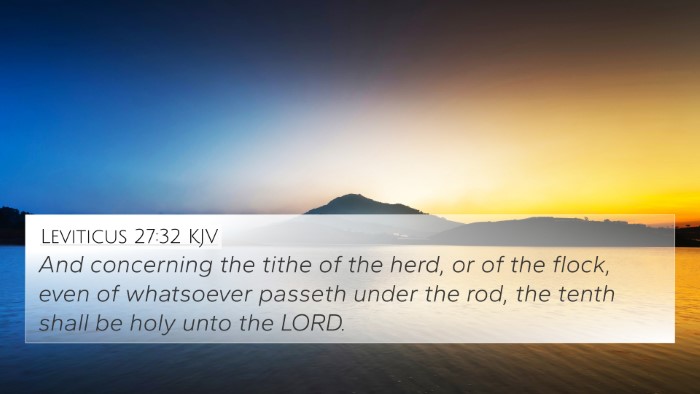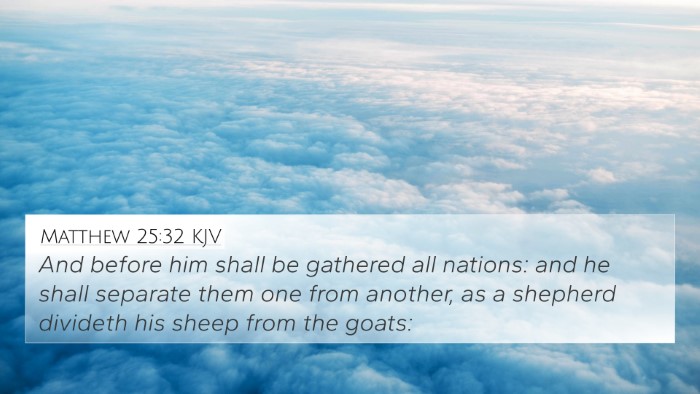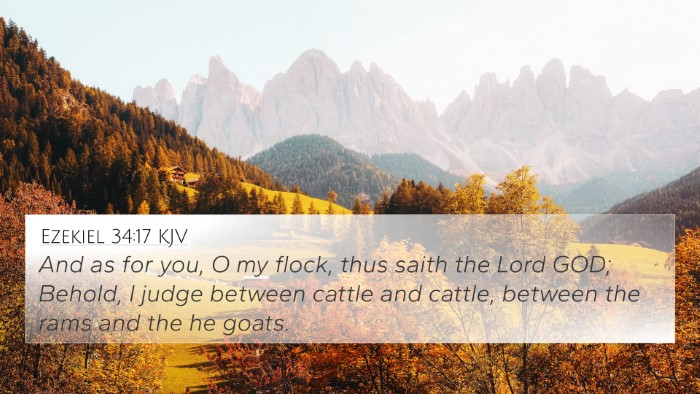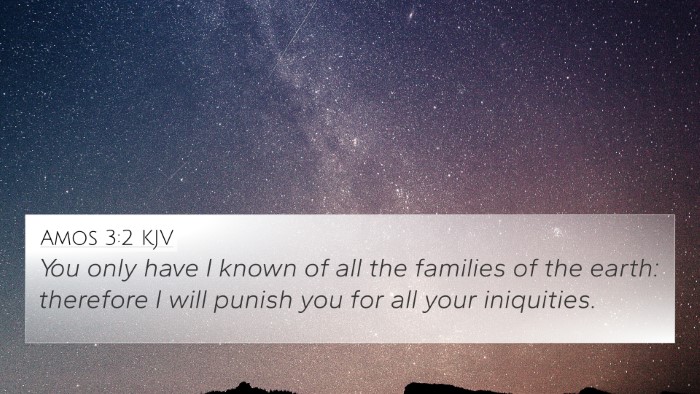Ezekiel 20:37 - Summary and Commentary
Ezekiel 20:37 states: "And I will cause you to pass under the rod, and I will bring you into the bond of the covenant." This verse reflects God's intentions for His people, depicting the process of purification and the reaffirmation of their covenant relationship with Him.
Understanding the Verse
This verse expresses a profound spiritual reality where God utilizes discipline and guidance to lead His people back into a trustful relationship with Him. Through the metaphor of "passing under the rod," it communicates the idea of a shepherd counting and guiding his flock, an act of accountability and care.
Commentary Insights
-
Matthew Henry:
Henry emphasizes that God's passage "under the rod" is indicative of judgment and discipline, aiming to correct and unite His people. This imagery aligns with God's ultimate purpose of restoration: bringing the people into the bond of the covenant, illustrating His enduring mercy and willingness to forgive.
-
Albert Barnes:
Barnes notes that the "rod" symbolizes a thorough scrutiny and the enforcement of God's laws, stressing the importance of obedience within the covenant relationship. This underlines the idea that only through acknowledgment of their shortcomings can the Israelites fully embrace the covenant.
-
Adam Clarke:
Clarke highlights the redemptive aspect of this process, portraying it as necessary for the people to reconnect with God. By passing under the rod, they are not only being counted but also guided towards restoration and reconciliation with God, demonstrating His fidelity to His promises.
Connecting to Other Scriptures
To deepen understanding of Ezekiel 20:37, it is beneficial to explore cross-references to find connections between other Bible verses. These connections can elucidate themes of discipline, covenant, and restoration.
Cross-References for Ezekiel 20:37
- Leviticus 26:9: God promises to establish His covenant with His people.
- Isaiah 40:11: Imagery of shepherding, paralleling God’s care and guidance.
- Psalms 23:4: The Lord as a shepherd, indicating His protective nature.
- Jeremiah 31:31: The promise of a new covenant, enhancing themes of hope and restoration.
- Zechariah 13:7: Striking the shepherd and the sheep addressing discipline and purification.
- Hebrews 12:5-6: New Testament insight into divine discipline as an expression of love.
- Matthew 18:12-14: The shepherd who seeks the lost sheep reflects God’s undying commitment to His people.
Thematic Connections
The themes woven throughout Ezekiel 20:37 find resonance across Scripture, as they encapsulate God's ongoing commitment to His people amid their waywardness. The metaphor of the rod illustrates the blend of discipline and love inherent in God's nature.
Exploring Inter-Biblical Dialogue
In this discussion, an analysis of the inter-Biblical dialogue reveals God’s persistent effort through various means to engage His people in covenant relationship. By analyzing the parallel themes, one gains insight into the continuity of God’s redemptive plans throughout both testaments.
Applications for Study
Understanding Ezekiel 20:37 within its broader scriptural context offers tools for effective study, including:
- Using a Bible concordance to locate thematic connections.
- Employing a Bible cross-reference guide for deeper understanding.
- Engaging in cross-reference Bible study methods to explore related verses.
- Utilizing Bible reference resources for a comprehensive perspective.
- Applying Bible chain references to trace thematic concepts.
Conclusion
In conclusion, Ezekiel 20:37 encapsulates a vital moment in the relationship between God and His people, showcasing the themes of guidance, discipline, and restoration. By examining this verse and its connections across Scripture, believers can gain a richer understanding of God's unwavering love and commitment to His covenant community.
By actively engaging in comparative Bible verse analysis and utilizing tools for Bible cross-referencing, individuals can deepen their spiritual insights and connect the rich tapestry of Biblical themes for a transformative study experience.










